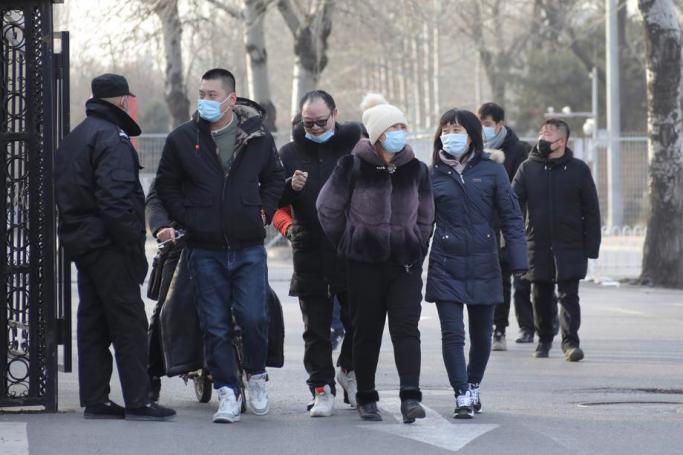China sealed off two cities and imposed travel restrictions on 18 million people Friday in an effort to eliminate fresh coronavirus clusters, as the United States reported a record number of deaths from the disease.
Authorities in the two cities south of Beijing cut transport links and instituted mass testing after 127 infections were recorded in the region over the past week.
They joined Australia's third-largest city in taking an ultra-cautious approach to the pandemic, with Brisbane announcing a lockdown over a single infection.
The responses to the relatively small outbreaks contrasted sharply with the chaos surrounding runaway infection figures in many other parts of the world.
The United States reported a daily record on Thursday with nearly 4,000 deaths, while the toll in Brazil hit 200,000.
Many countries in east Asia however have managed to deal with outbreaks more effectively, and China on Friday moved to contain its largest cluster in six months with its usual tight restrictions.
The northern cities of Shijiazhuang and Xingtai, home to more than five million people, were effectively sealed off.
Long-distance passenger vehicle transport in both cities was suspended as of Friday, and highways were closed. Flights to and from Shijiazhuang were cancelled, and trains suspended.
Orders to remain in their local areas were placed on everyone in Shijiazhuang and Xingtai, as well as surrounding regions.
The number of people in the areas facing some form of restrictions totalled roughly 18 million people.
So far around 6.7 million residents of the area have been tested, officials said Friday.
"I am more worried than before," said Wu Xi, a medical worker at a maternal health centre in Shijiazhuang.
"But I still believe the outbreak will be contained very soon. Stay strong."
- Lockdown 'imperative' –
In Brisbane a cleaner at a quarantine hotel was reported to have contracted a strain of the virus imported from Britain that is thought to be more infectious.
It prompted the local government to order more than two million residents in the Greater Brisbane area stay home for at least three days from Friday evening.
Large queues formed at shops around the city, prompting officials to urge people to stop panic- buying, despite the incoming restrictions still allowing residents to leave home to buy essentials.
"I don't think a three-day lockdown is going to hurt us at all. I think it's imperative to stamp out the virus," said Andy McPhee, 51.
"One case becomes two and two cases become 10, so before you know it, it can get a bit out of control."
The lockdown in Brisbane comes a day after Japan announced a month-long state of emergency to deal with its latest surge in infections, sowing doubt about the viability of the Tokyo Olympics this summer.
Japan on Friday insisted the Games will go ahead, despite the state of emergency coming less than 200 days before the scheduled opening ceremony.
"This declaration of emergency offers an opportunity to get the Covid-19 situation under control," organisers said in a statement.
But International Olympic Committee member Dick Pound told the BBC that he could not "be certain" the Games will go ahead, because "the ongoing elephant in the room would be the surges in the virus"
-'Exhausted'–
Around the world, there are few signs of the virus abating, with nearly 1.9 million people known to have died worldwide and 87 million confirmed cases.
The numbers continue to get worse in the United States, the country with the world's highest death toll, at more than 360,000.
The nation registered a record 3,998 deaths over the past 24 hours, according to Johns Hopkins University.
Brazil, the country with the second-highest toll, reported its second-highest number of daily deaths at 1,524.
The situation stands to get a lot worse in Brazil before it gets better, warned Paulo Lotufo, an epidemiologist at the University of Sao Paulo.
"I don't even know how we're going to get through January,"he told AFP.
"A lot of health workers are exhausted. People have had to deal with a huge amount of suffering."
AFP












